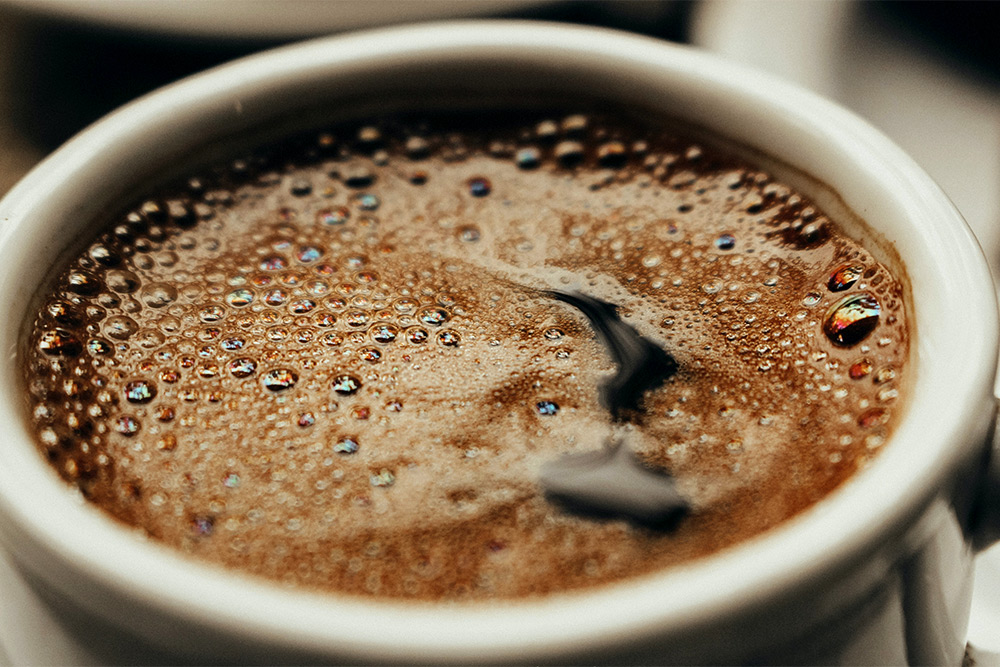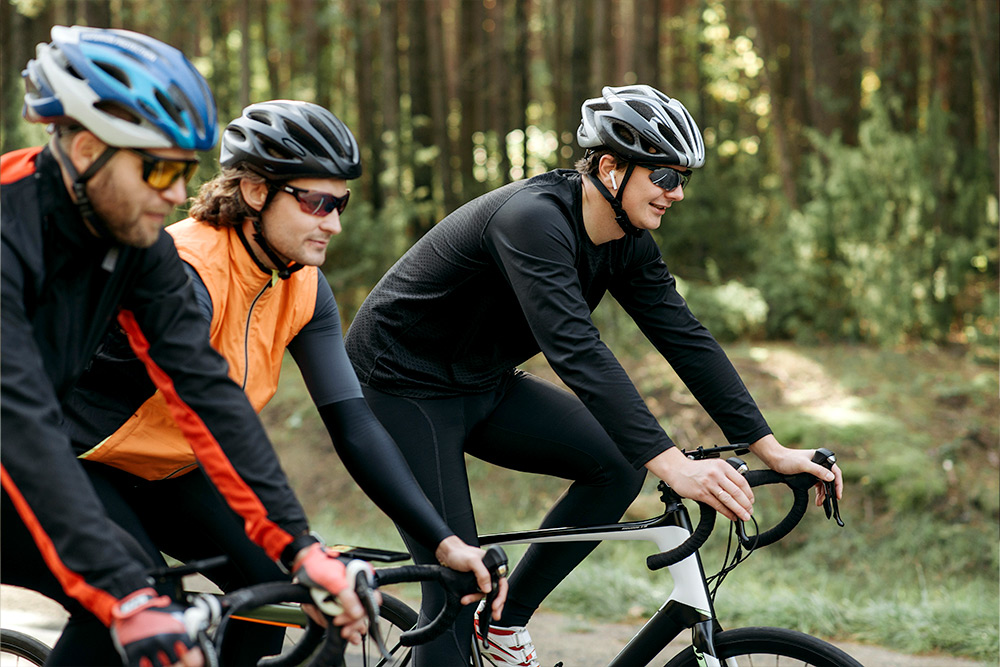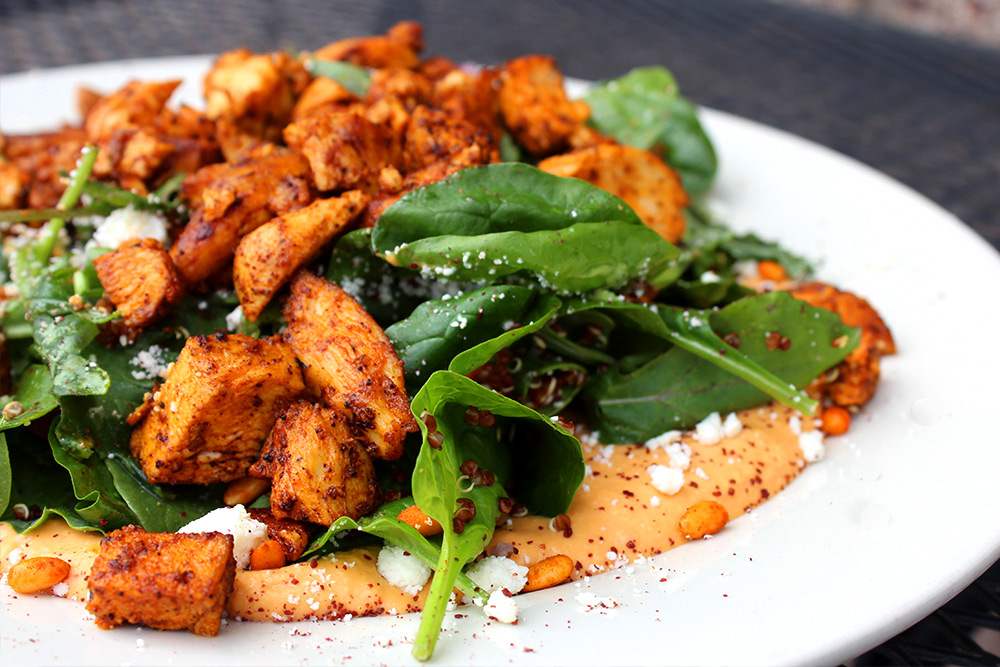Caffeine can offer performance and recovery gains to your workouts.
Want to slice time off your personal best run, or maximise your lifting efforts on the weights? Then caffeine can offer you some benefits; these are the scientifically proven effects and also what you should be aware of.
Effect on recovery after exercise

Let’s start with recovering after exercise. There have been numerous studies that have shown caffeine ingestion, alongside carbohydrates, strongly affects muscle recovery, getting the energy back into tired muscles much faster than otherwise. Positive news for those looking to train harder by increasing their frequency – although as a caveat it must be said that some studies involve some pretty hefty caffeine ingestion.
For example, one trial supplemented 8mg per kg of bodyweight – for this writer that would be 800mg of caffeine, around eight cups of proper coffee – oof! Probably quite hard to consume alongside a big bowl of oats too, if carb-loading, prior to a training session or particular sporting event.
However, the good news is that an intake of just 2mg per kg of body weight (two cups of coffee) was sufficient to see extra benefits to glycogen replenishment in the muscles, although at reduced levels – glycogen is stored in the muscles and is their main fuel source and comes from the food we eat.
The trial studied endurance-trained cyclists and triathletes in a randomised, double-blind trial and showed that participants’ muscles regained 66% more glycogen in the four hours after intense exercise when combining caffeine with carbohydrates during recovery (subjects were administered caffeine before and during exercise, which indicates caffeine exerts its effect best on muscle glycogen synthesis when consumed at the same time as carbs).
The believed mechanism for this faster replenishment was that caffeine can play a role in stimulating intestinal glucose absorption, meaning the recovery cycle is accelerated.
So, the bottom line is, consuming caffeine alongside your carbs post-exercise, can quicken your muscles’ recovery time, allowing for higher training frequencies.
Performance enhancement

The strength and endurance-enhancing properties of caffeine have been long known, with many trials and studies being dedicated to its benefits over the years. Many of the trials have shown that simple coffee ingestion can greatly improve an athlete’s performance above their own baseline abilities and that cognitive performance improvements are also reported in test subjects.
One study found that combining caffeine and carbs improved performance by 9% compared to water alone, and 4.6% compared to carbs alone.
Another study found that in a 1,500-meter run, regular coffee drinkers were 4.2 seconds faster than those drinking decaffeinated coffee.
Another linked study found that coffee helped reduce the perception of effort, allowing athletes to work harder, for longer. In a study of cyclists, caffeine was shown to outperform carbs or water in increasing workload.
The cyclists ingested 250mg (2.5 cups of coffee), of caffeine an hour prior to their ride and this was followed by an additional loading of 250mg, at 15min intervals, over the first 90min of the ride. This consumption of caffeine boosted endurance performance by 7.4% and their Vo2 by 7.3% (Vo2 is the maximum amount of oxygen that your body can use during exercise).
The other significant thing to note about this is that alongside the comparatively large increase in the cyclists’ performance, the subjects’ perception of their own exertion remained unchanged, which is a key psychological effect that caffeine can cause in the user – you are working harder, but don’t actually feel like you are.
So, the bottom line is that caffeine really can help in allowing users to maximise their workout and training sessions or achieve those personal bests, training harder, for longer.
In a systematic review, found that while there is a significant impact of coffee on the cardiovascular system, and on the metabolism of carbohydrates and lipids (in muscle recovery and fat breakdown): “Coffee is associated with a reduction in the incidence of diabetes and liver disease. Protection seems to exist also for Parkinson’s disease among neurological disorders, and its effect on cancer risk appears to favour risk reduction. Coffee consumption seems to reduce mortality.”
Effects on iron absorbtion

One thing to be aware of with coffee intake is potential iron deficiency, as coffee and other caffeinated drinks (especially teas) have been shown to inhibit iron absorption in the digestive system.
A study found that drinking a cup of coffee with a ‘hamburger meal’ reduced iron absorption by 39%. In the same study they found that drinking tea, a known inhibitor of iron absorption, with the same hamburger meal reduced iron absorption by 64% – and the stronger the tea or coffee, the less iron was absorbed by the participants.
Alongside caffeine the polyphenols and tannins found in tea and coffee are also thought to be inhibitors of iron absorption. A study found that these substances include chlorogenic acid, which is found mainly in coffee, cocoa, and also some herbs, and the tannins found in black tea and coffee, inhibit iron absorption in humans.
These compounds were found to bind with iron during the digestion process, making it more difficult for the body to absorb, with the levels of iron absorption decreasing as the polyphenol content of the food or beverage increased.
For those with specialised diets, vegan or vegetarian diets, who may have lower iron intakes, it would be considered wise to reduce caffeinated drink intake, or to take other measures such as supplementation – but always consult your doctor first.
However, the good news is that the study also found that the effects of coffee and caffeine on iron absorption were dependent on when it was consumed alongside food. Drinking your morning coffee one hour before breakfast should have no effect on iron absorption.
To see your company in any upcoming features we are arranging please email laura@hurstmediacompany.co.uk or editorial@hurstmediacompany.co.uk








